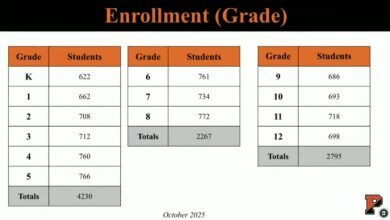AI Agents to Transform Personal Finance

In the rapidly evolving world of financial technology, Plaid CEO Zach Perret is betting big on artificial intelligence to reshape how consumers manage their money. During a recent interview, Perret expressed a bold vision where AI agents, akin to advanced versions of ChatGPT, could autonomously handle personal finances—from budgeting to investment decisions. He envisions a future where these systems not only track spending but also make proactive choices, like reallocating investments based on market shifts, all without constant human input.
This optimism stems from Plaid’s position as a key infrastructure provider in fintech, connecting bank accounts to apps like Venmo and Robinhood. Perret highlighted how AI could leverage Plaid’s vast data network to create seamless, intelligent financial experiences. Yet, he acknowledged the challenges, including ensuring data privacy and building trust in AI-driven decisions that involve real money.
The Rise of AI in Banking: Opportunities and Hurdles Ahead As Perret noted in his discussion with Business Insider, the integration of AI into banking isn’t just probable—it’s inevitable. He pointed to tools like ChatGPT as precursors to more sophisticated agents that could negotiate bills or optimize tax strategies on behalf of users. This aligns with broader industry trends, where firms are experimenting with AI to automate routine tasks and enhance decision-making.
For instance, major players like Morgan Stanley and Bank of America are already deploying internal AI tools to boost employee efficiency, as detailed in reports from the same publication. These initiatives focus on areas like risk assessment and customer service, reducing the grunt work that has long plagued financial professionals.
From Hypothetical to Practical: Implementing AI Agents in Finance Perret’s comments underscore a shift toward “agentic” AI, a concept echoed by OpenAI’s Sam Altman, who has discussed future models with enhanced memory and personalization. In finance, this could mean AI systems that remember user preferences and adapt over time, potentially revolutionizing wealth management by 2030, according to a ThoughtLinks report referenced in Business Insider.
However, the path forward isn’t without pitfalls. Perret emphasized the need for robust safeguards against errors, such as AI hallucinations that could lead to faulty financial advice. Industry insiders are also wary of regulatory hurdles, with concerns about data security and bias in AI models, as explored in a study from Humanities and Social Sciences Communications on ChatGPT’s role in finance.
Investment and Job Implications: A Double-Edged Sword The financial sector’s embrace of AI is driving massive investments, with Big Tech pouring billions into the technology, as reported by Reuters. Perret’s vision suggests that AI could democratize access to sophisticated financial tools, allowing everyday consumers to benefit from strategies once reserved for high-net-worth individuals.
Yet, this transformation raises questions about employment. A Bloomberg survey, highlighted in posts on X, predicts up to 200,000 job losses in banking due to AI efficiencies, a sentiment shared by Klarna’s CEO who warns of an impending “jobs shock.” Plaid, under Perret’s leadership, is positioning itself to mitigate such disruptions by focusing on AI that augments human capabilities rather than replacing them entirely.
Looking Ahead: AI’s Role in Personalized Finance Ultimately, Perret’s enthusiasm points to a personalized financial future where AI acts as a tireless advisor. Drawing from Plaid’s own innovations in fraud detection and credit scoring, as mentioned in industry discussions on X, the company aims to build AI systems that are both intuitive and secure.
As finance continues to digitize, leaders like Perret are pushing boundaries, but success will depend on balancing innovation with ethical considerations. With AI’s potential to drive efficiency and accessibility, the sector stands on the cusp of profound change, provided it navigates the complexities of trust and regulation effectively.






